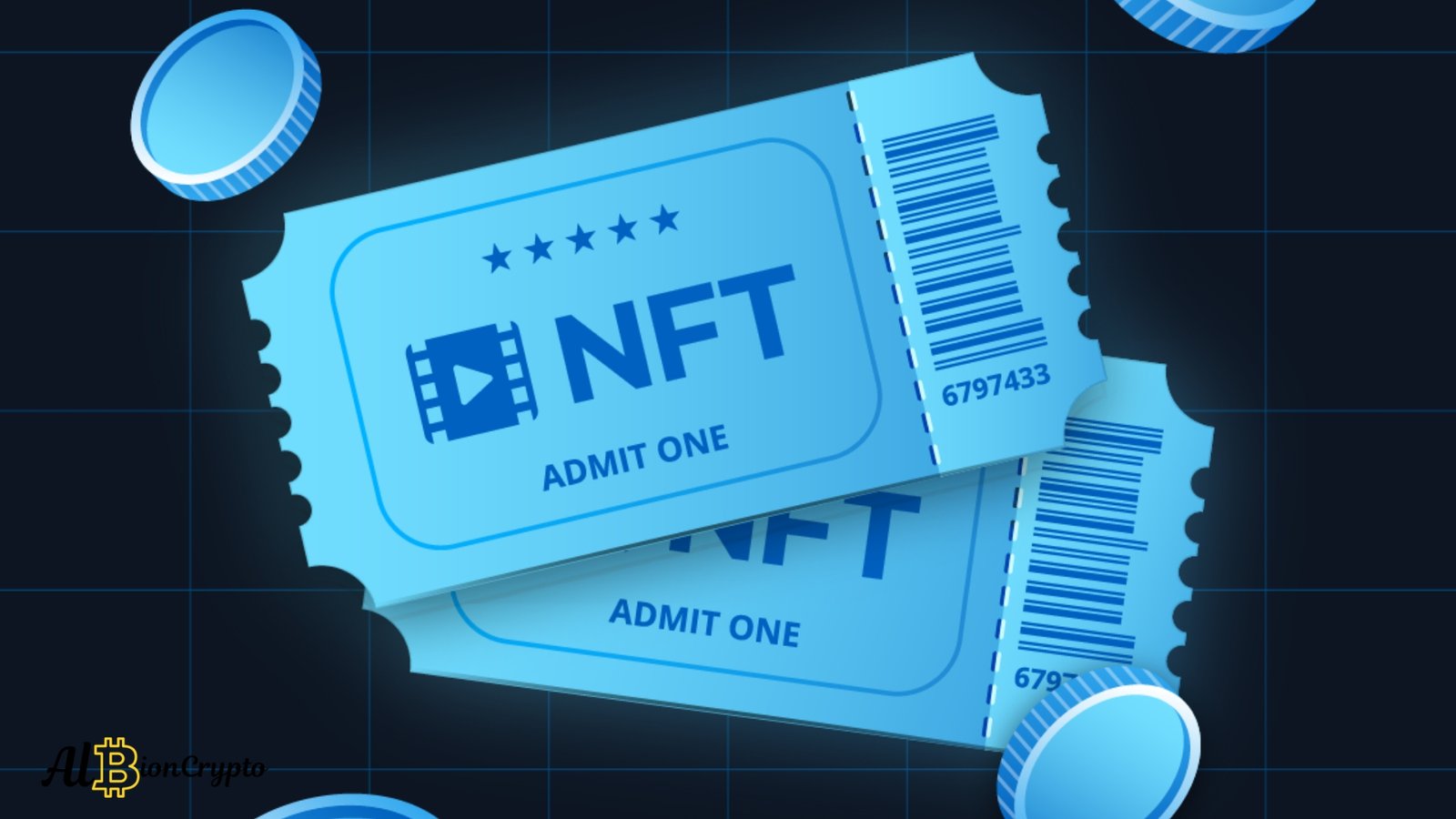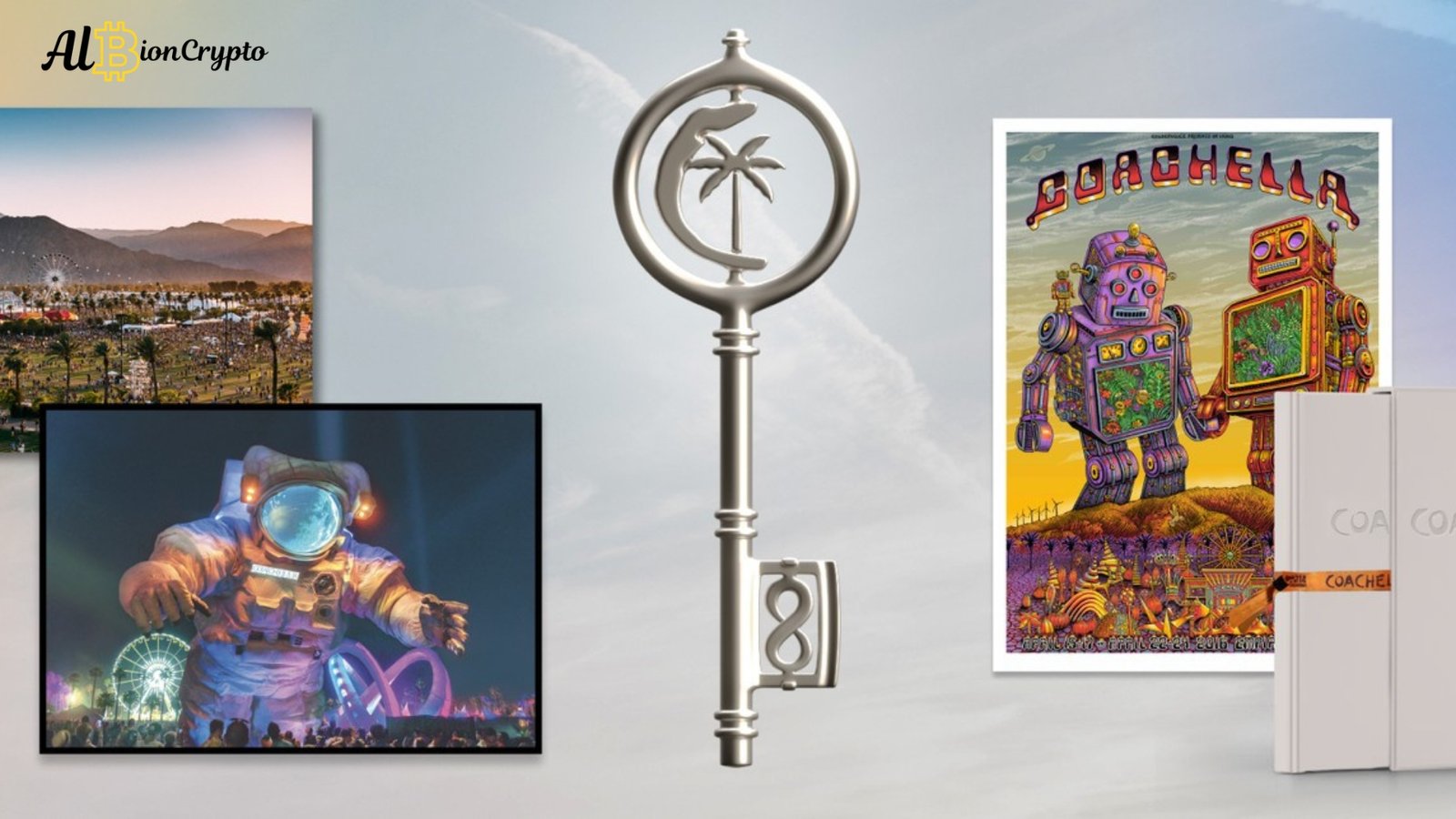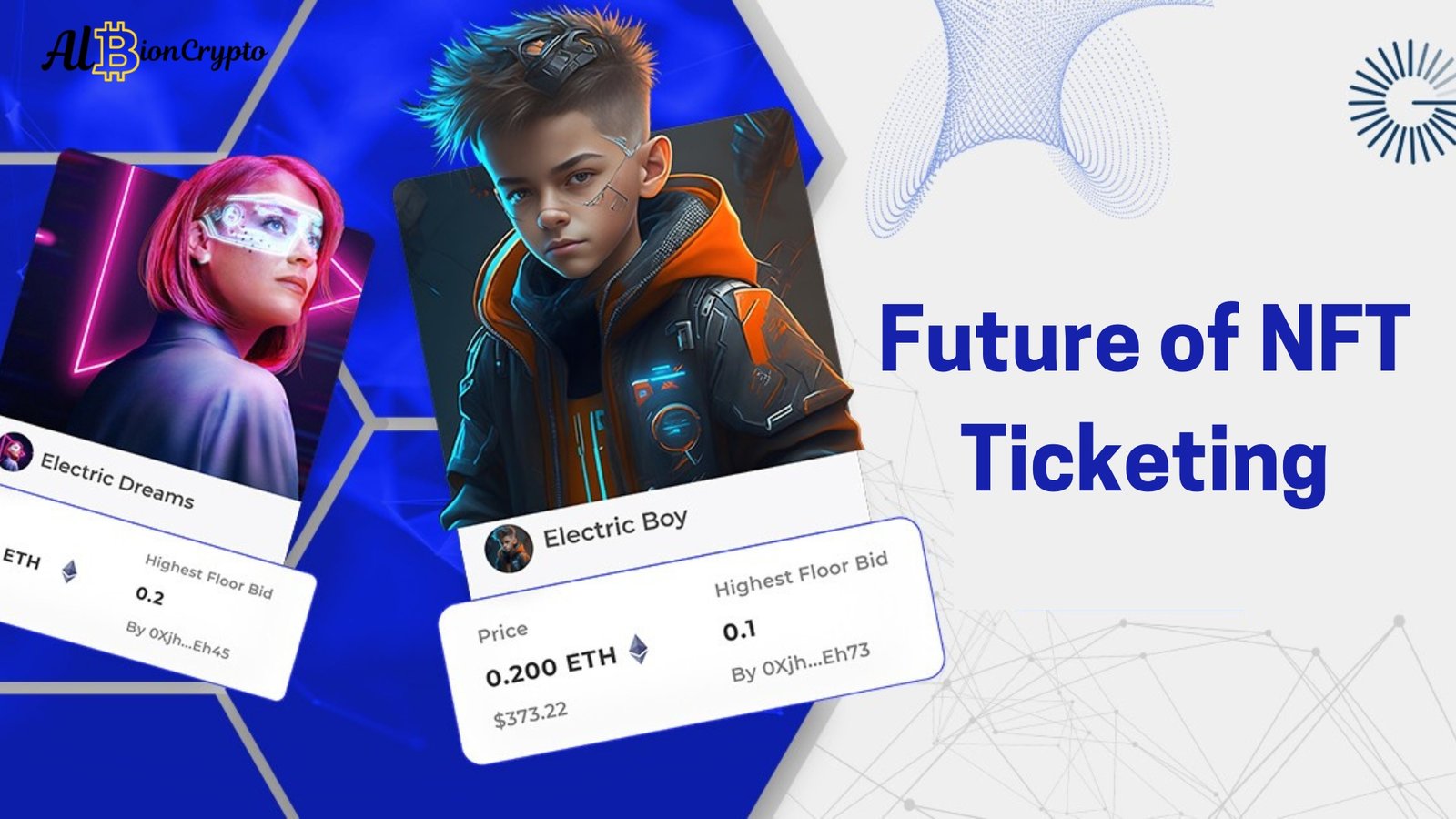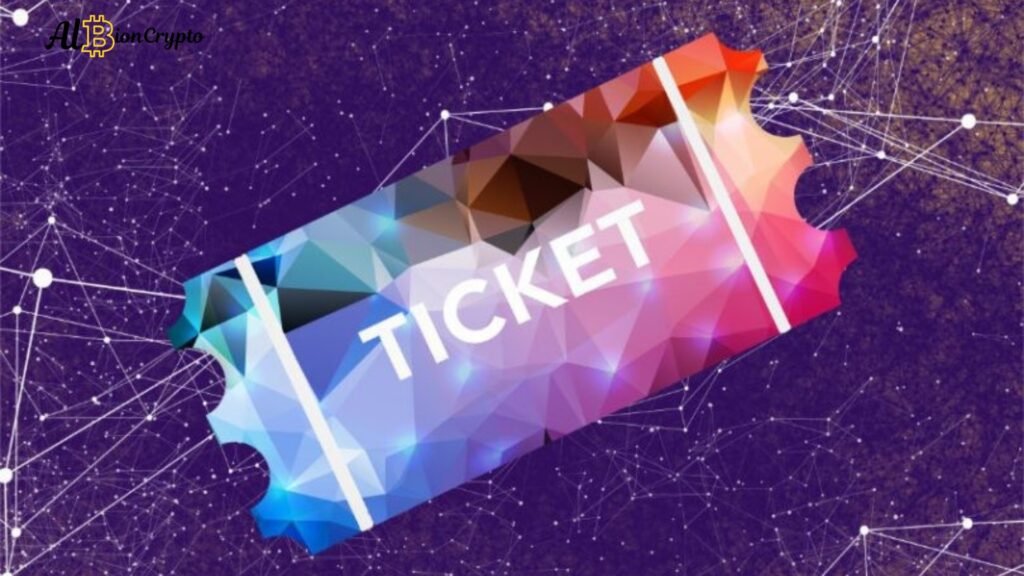The event ticketing world has been plagued with problems for decades. Counterfeit tickets, scalping, and opaque secondary markets have been persistent issues that both organizers and attendees face. However, the advent of blockchain technology and non-fungible tokens (NFTs) promises to change that. NFT ticketing, a new and rapidly growing blockchain application, is revolutionizing how we think about event access. By leveraging blockchain’s transparency, security, and immutability, NFT tickets can address many of the challenges traditional ticketing systems face while offering new opportunities for event organizers, artists, and fans.
Before diving into NFT ticketing, it’s essential to understand what NFTs are. An NFT, or non-fungible token, is a digital asset representing ownership of a unique item or piece of content blockchain. Unlike cryptocurrencies such as Bitcoin or Ethereum, which are fungible (i.e., interchangeable with one another), NFTs are unique and cannot be exchanged on a one-to-one basis. Each NFT has distinct characteristics that make it different from others, so they’re often used to represent rare items such as digital art, collectibles, and, increasingly, tickets.
The Problems with Traditional Ticketing
The traditional ticketing industry is fraught with challenges that event organizers and attendees face. These problems include:
- Counterfeiting: Fake tickets have been a long-standing issue, especially for high-profile events. This problem not only affects fans who are duped into buying fake tickets but also damages the reputation of event organizers.
- Scalping and Reselling: Scalpers buy tickets in bulk and resell them at inflated prices on secondary markets. While some event organizers try to control reselling through strict regulations, monitoring and managing effectively isn’t easy.
- Lack of Transparency: Traditional ticketing platforms often lack transparency regarding pricing, fees, and ticket availability. Fans are left frustrated when tickets for major events sell out within seconds, only to reappear on secondary platforms at exorbitant prices.
- Limited Fan Engagement: The interaction between the event organizer and the ticket holder typically ends once a ticket is sold. There are few opportunities for ongoing fan engagement, loyalty rewards, or special perks.
Enter NFT Ticketing
NFT ticketing provides a solution to many of these problems. Using blockchain technology, tickets can be issued as NFTs, ensuring each ticket is unique, traceable, and verifiable. Let’s explore the key benefits that NFT ticketing brings to the table:
Fraud Prevention
One of the most significant advantages of NFT ticketing is its ability to prevent fraud. Since NFTs are stored on a blockchain, they are tamper-proof and cannot be duplicated. Each ticket is represented as a unique digital asset with a record of its ownership, which anyone on the blockchain can easily verify. This makes it virtually impossible for counterfeit tickets to circulate, giving event organizers and attendees peace of mind.
Control Over Secondary Markets
NFT ticketing allows event organizers to regain control over the resale of tickets. Smart contracts, self-executing agreements coded into the blockchain, can enforce specific rules regarding the resale of NFT tickets. For example, an organizer can set a maximum resale price or ensure that a percentage of resale profits go back to the original issuer, such as the artist or venue. This curbs scalping and ensures that the primary stakeholders benefit from secondary sales.
Transparency and Fairness
By leveraging blockchain’s inherent transparency, NFT ticketing platforms can provide real-time information about ticket availability, pricing, and transactions. This level of openness eliminates many fans’ frustratifans’en tickets seem to “magically” disappear during the buying process. Additionally, smart contracts can be programmed to allocate tickets fairly and decentralized, reducing the influence of bots and ticket hoarders.
Enhanced Fan Engagement
NFTs offer a unique opportunity for event organizers to engage with fans in new and creative ways. Beyond simply serving as a digital ticket, an NFT can include additional perks, such as access to exclusive content, backstage passes, or virtual meet-and-greets with artists. These add-ons can help deepen the connection between the ticket holder and the event, creating a more immersive and rewarding experience.
Moreover, because NFTs are programmable, event organizers can continue to engage with fans even after the event has ended. For example, they could issue rewards or digital collectibles to attendees who show up early, participate in specific activities, or engage with sponsors. This creates a feedback loop of fan engagement that extends beyond the event.
Increased Revenue Opportunities
For event organizers, NFT ticketing can unlock new revenue streams. Since smart contracts can be programmed to take a percentage of any resale, artists, venues, and organizers can continue to earn revenue every time a ticket is resold. This is a significant shift from traditional ticketing systems, where only the scalper profits from resale transactions. In addition, NFT tickets can be bundled with exclusive digital content, such as limited-edition artwork or music releases. Fans may be willing to pay a premium for these one-of-a-kind experiences, creating more monetization opportunities.
Real-World Examples of NFT Ticketing
While NFT ticketing is still in its infancy, several companies and events have already started to explore its potential. Here are some notable examples:
Coachella
In 2022, the Coachella Valley Music and Arts Festival made headlines by offering lifetime festival passes as NFTs. These “Coachella Keys” granted the holders access to the festival for life and came with unique perks, such as VIP experiences and on-site access to special events. Coachella’s foray into NFT ticketing demonstrated how NFTs could enhance fan experiences while generating excitement and exclusivity.
GUTS Tickets
GUTS Tickets, a blockchain-based ticketing platform, has been pioneering the use of NFTs in ticketing for several years. The platform aims to eliminate ticket fraud and scalping by issuing tickets as NFTs that can be easily verified on the blockchain. GUTS also allows event organizers to control the resale of tickets, ensuring that tickets are sold at fair prices and that resale profits are distributed equitably.
YellowHeart
YellowHeart is another blockchain-based ticketing platform focusing on live music and entertainment industries. The platform allows artists and venues to issue tickets as NFTs, giving them control over pricing, resale, and fan engagement. In 2021, YellowHeart partnered with popular rock famous Leon to release an album as an NFT, with the purchase of the NFT granting fans special perks, such as front-row seats to future concerts.
NBA Top Shot
While NBA Top Shot is primarily known for its NFT-based digital collectibles, it has also dabbled in NFT ticketing. The platform has experimented with offering NFT tickets for exclusive NBA events, allowing fans to attend games and meet their favorite players. This integration of NFTs into the sports world highlights the potential for NFT ticketing to extend beyond music festivals and concerts into other entertainment sectors.
Alos Read: NFT Ticketing Revolutionizing the Event Industry
The Future of NFT Ticketing
As NFT ticketing continues to gain traction, the future looks bright for this emerging technology. However, several challenges must be addressed before it can become mainstream.
Scalability
One of the critical concerns with blockchain technology is scalability. Most blockchains, especially Ethereum (which powers the majority of NFTs), face high transaction fees and slow processing times during periods of heavy traffic. These limitations could pose challenges for large-scale events that require issuing and transferring thousands of tickets in real time.

Areal-times several layer-2 solutions and alternative blockchains, such as Polygon and Solana, have emerged, offering faster and more cost-effective transactions. As these technologies mature, they could make NFT ticketing scalable for mass adoption.
Environmental Concerns
Another concern is the impact of blockchain technology, particularly in proof-of-work blockchains like Ethereum. The high energy consumption required for mining and verifying transactions has led to criticism from environmental advocates. However, Ethereum’s transition to a proof-of-stake consensus mechanism in 2022 significantly reduced its energy consumption. As more blockchain networks adopt eco-friendly practices, the environmental impact of NFT ticketing should diminish.
Regulatory Hurdles
The regulatory landscape surrounding NFTs and blockchain technology is still evolving. Governments and regulatory bodies worldwide are grappling with how to classify and regulate NFTs, especially regarding issues like taxation, intellectual property rights, and consumer protection. As NFT ticketing grows in popularity, organizers must navigate these regulatory challenges to ensure compliance and avoid legal pitfalls.
Conclusion
NFT Ticketing a paradigm shift in how we think about event access. By leveraging blockchain technology, NFT tickets offer solutions to long-standing problems in traditional ticketing, such as fraud, scalping, and lack of transparency. Moreover, NFT tickets open up new possibilities for fan engagement, revenue generation, and creating exclusive, one-of-a-kind experiences.
As the technology continues to evolve, we can expect to see even more innovative use cases for NFT ticketing in various sectors, from music festivals and sports events to conferences and virtual experiences. While challenges such as scalability and regulation remain, the potential benefits of NFT ticketing are undeniable. In the coming years, NFT ticketing could become. The new event industry standard is revolutionizing how we buy, sell, and experience tickets.
FAQs
What is NFT ticketing and how does it differ from traditional tickets?
NFT ticketing uses blockchain technology to issue tickets as non-fungible tokens (NFTs), making each ticket a unique, verifiable digital asset. Unlike traditional paper or digital tickets that can be easily duplicated, NFT tickets are stored on a blockchain, making them tamper-proof and impossible to counterfeit. Each ticket has a traceable ownership record that can be verified by anyone on the blockchain.
How does NFT ticketing prevent scalping and ticket fraud?
NFT ticketing addresses these issues through smart contracts—self-executing agreements coded into the blockchain. These contracts can enforce rules such as maximum resale prices and ensure that a percentage of resale profits returns to the original issuer (artist, venue, or organizer). Since each NFT ticket is unique and verifiable on the blockchain, counterfeit tickets cannot circulate, eliminating fraud entirely.
What additional benefits do NFT tickets offer beyond basic event access?
NFT tickets can be programmed to include exclusive perks such as access to special content, backstage passes, virtual meet-and-greets with artists, or limited-edition digital collectibles. Event organizers can continue engaging with fans even after the event by issuing rewards to attendees who participate in specific activities. This creates an immersive experience that extends beyond the event itself.
What are the main challenges facing widespread adoption of NFT ticketing?
The primary challenges include scalability issues (high transaction fees and slow processing times on some blockchains during heavy traffic), environmental concerns about energy consumption, and evolving regulatory uncertainty around NFT classification, taxation, and consumer protection. However, solutions like layer-2 technologies and Ethereum’s transition to proof-of-stake are addressing these concerns.
Which major events or platforms have already implemented NFT ticketing?
Several notable examples include Coachella’s “Coachella Keys” offering lifetime festival passes as NFTs, GUTS Tickets pioneering blockchain-based ticketing to eliminate fraud, YellowHeart partnering with artists for NFT ticket releases with special perks, and NBA Top Shot experimenting with NFT tickets for exclusive basketball events. These examples demonstrate the technology’s potential across music, sports, and entertainment sectors.


